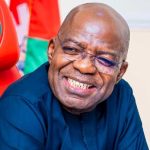Sanusi explains Cashless Lagos

I feel highly honoured to be invited as special guest at this event tagged: ‘ Cash-Less Lagos Fair 2012′ . This kind of event and similar ones are very important and auspicious to the Central Bank of Nigeria as they serve as veritable platforms for enlightening the participants and the public at large. It is also an avenue for knowledge sharing and cross fertilisation of ideas aimed at improving the Nigerian Payments System space. I am therefore proud to be associated with the initiative and wish to commend the organisers of this event.
Let me place on record that it cannot be controverted that Central Banks all over the world are usually at the centre of the development of banking and payments system. This is imperative given the fact that they perform the role of facilitating the exchange of goods and services among economic agents. Most importantly, an efficient payments system enhances financial inclusion and effective transmission mechanism of monetary policy as well as overall financial stability of the economy. In this regard, the Central Bank of Nigeria is not different and has since its inception vigorously promoted the development of a sound and efficient payments system in the country.
As you are all aware, the CBN has been at the forefront in the reformation of banking and payments system development in the country. This has been amply demonstrated in various ways including the development of the Payments System Vision 2020 document in 2007, which is aimed at providing a roadmap for efficient payments system infrastructure that would be nationally utilized and internationally recognized. One of such payment initiatives is the Cash-less economic policy which has brought all us here together today.
Let me pause at this juncture and reiterate that the Cash-less economic policy was designed to promote financial intermediation, financial inclusion, minimise revenue leakages, eliminate incidence of robbery and also reduce the amount of cash payment and encourage electronic payment. This is because cost of cash and associated risk of cash-driven economy to Nigeria’s financial system is high and increasing. In fact, the direct cost of cash management is estimated to reach N192 billion by the end of 2012. It is in an attempt to reduce these challenges that the CBN in collaboration with the Bankers’ Committee initiated the project “Cash-Less Nigeria” with the aim of encouraging Nigerians to adopt e-payment. This project commenced its pilot scheme in Lagos, tagged ‘Cash-less Lagos’ and it is to run through the whole year.
The main objective of my presentation is to further enlighten the public on the status of the project and to clarify grey areas of the implementation.
WITHDRAWAL
The policy on withdrawal allows individual customers to make a free cumulative withdrawal of N500,000 daily across the counters and ATM. Withdrawal above the free limit will attract processing fees of three percent for every N1000 above the limit.
Corporate customers are allowed to make free cumulative withdrawal of N3,000,000 daily. Withdrawal above the free limit will attract a processing fee of five percent for every N1000 above the limit.
LODGEMENT
The policy on lodgment allows individual customer to make a free cumulative lodgment of N500,000 daily. Lodgment above the free limit will attract processing fees of two percent for every N1000 above the limit.
Corporate customers are allowed to make free cumulative lodgment of N3,000,000 daily. Lodgment above the free limit will attract a processing fee of three percent for every N1000 above the limit.
The pilot in Lagos State has commenced and will run through till December 2012. In January 2013, the project will be extended to other major cities in Nigeria.
I need to make it clear that it is the account to which withdrawal and lodgment is made that bears the processing charges and NOT the individual that receives or deposits the cash.
Cumulative withdrawal/lodgment means the totality of all withdrawal and lodgment across all the customer’s accounts in the bank
AVAILABLE CHANNELS
In order to facilitate and encourage the alternative means of payment, the banks and acquirers have deployed and implemented several means for e-payments namely:
Point of Sale (POS ) TERMINALS
As of Monday May 7, 2012, the banks have deployed a total of 70,000 PoS terminals to merchant locations. Our target is to deploy over 150,000 PoS terminals by the end of the year.
Automated Teller Machine ( ATM)
There are over 9,000 ATMs that have been deployed in and outside of the bank branches and these ATMs have the capability to enable bill payment, Funds Transfer, Virtual top-up etc.
WEB
More merchants are being signed up to offer services on their portal and accept web payments. Airline, hotels, telecommunication companies, government bill etc are making concrete and concerted efforts in this direction.
MOBILE
The CBN has licensed about 15 mobile payment operators to offer payment services via the mobile phone that over 90 million Nigerians are carrying. This will also help promote financial inclusion and by extension, make the nation a cashless one.
NIBSS Payment Service
The NEFT and NIP are also available through the banks’ internet banking platform to enable P2P, P2B and B2B payments.
INTERNET BANKING
The banks have also enhanced their internet banking capabilities with a view to offering more robust, efficient and effective services for their customers in order to make instant payments within the context of P2P, P2B and B2B payments space.
We reckon that inadequate infrastructure, consumer education and even protection can pose serious challenges to the quick adoption of the payment options. Consequently, the CBN is working with all the stakeholders to ensure that these challenges are surmounted quickly as we encounter them during this pilot period. The banks under the aegis of the Bankers’ Committee, have engaged in aggressive campaign in several news media. The CBN had also engaged group of traders, associations and schools to provide the needed awareness and education. Additionally, it is gratifying to note that this Fair typifies one of the major windows of educating the public on the project.
FEEDBACK
It is also worthy of mention to state that since the commencement of the project till date, we have been receiving positive feedbacks from different quarters. Indeed some merchants especially the petrol stations have joined the league of enthusiasts by now encouraging their customers to use cards for payments.
Finally, we encourage all Nigerians to support this initiative in order to make Nigeria one of the world 20 economies in year 2020 and by extension, take her rightful place in the comity of nations.
- Sanusi, represented by Kamorudeen Olu Adaramewa, Deputy Director, Banking and Payment Systems Department of CBN, delivered the keynote at Cashless Lagos Fair organized by BusinessWorld newspaper.








